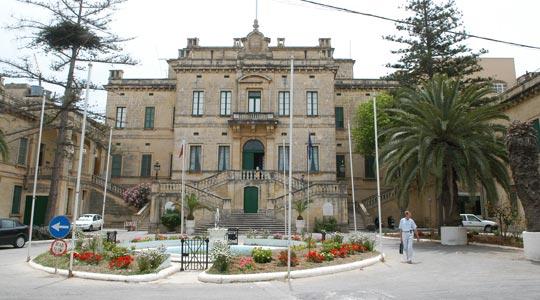A management service agreement, valued in excess of €274,000,000, was entered into on 14 November 2017 by St Vincent de Paul Residence (SVP) and the JCL and MHC Consortium and awarded directly following a negotiated procedure.
The Agreement governed the services that were to be provided by the consortium with respect to the 504 beds housed within four blocks that it was to construct. The construction of these blocks was linked to an additional investment valued at €29,000,000 that the consortium was to provide, at no cost to the SVP, in relation to a separate tender for comprehensive services, that also comprised the provision of catering and the construction of a kitchen. The contract relating to the tender, also entered into on 14 November 2017, was valued at €57,000,000.
The Public Accounts Committee requested the National Audit Office (NAO) to audit these contracts. Irregularities were noted by the NAO in its review of this procurement process, most serious of which are those relating to the concept of additional investment, the legal basis of the negotiated procedure, the absence of authorisation and concerns on failure to secure value for money.
The NAO was unable to determine how the additional investment component originated, notwithstanding that this was an innovative requirement of the call for tenders for comprehensive services. This Office has reservations as to why no parameters that were to guide potential tenderers formulate the additional investment was set. This concern assumes greater relevance given the disproportionate weighting that was assigned in the evaluation criteria. The concept of additional investment at no cost to the contracting authority, as applied in this case, is fallacious, for, in a transaction of significant value with commercial interests, nothing is ever secured for free. Bidders could recover the additional investment by factoring this cost into the pricing for the provision of meals or through other related agreements.
Gravest among concerns identified is that the basis cited as justification authorising the negotiated procedure was in breach of legislative provisions, thereby possibly leading to the invalidity of the procurement undertaken. The authorisation was sought by the SVP, endorsed by the Ministry for the Family and Social Solidarity (MFSS) and granted by the Department of Contracts (DoC) on the basis that competition was absent for technical reasons and reasons of extreme urgency. The NAO contends that there existed no technical reasons that precluded competition since the management of these blocks could have been undertaken by other operators. Notwithstanding the reference to urgency, this was not justified as the blocks were to be under construction for at least 18 months, during which the SVP could procure these services through an open procedure.
Conspicuously absent was any political authorisation endorsing the government’s commitment to a project of over €274,000,000 and entered into directly with the JCL and MHC Consortium. The agreement for the management of the additional blocks was not brought to the attention of Cabinet despite its materiality and the project’s national importance. The NAO concluded that no political authorisation to enter into a negotiated procedure with the consortium was requested from and provided by the parliamentary secretaries involved. Considering the extent of the project, its materiality, its significance due to the increase in capacity of existing facilities, and that negotiations had been underway for several months, the NAO deems incredulous how this project did not draw the attention of the parliamentary secretaries responsible for the SVP. Even if the project was not referred to the parliamentary secretaries for their authorisation, their failure to enquire as to the regularity of this procurement is in clear breach of their duty arising from the political post held.
Of concern to the NAO is that the MFSS, the SVP and the DoC pursued the offer by the JCL and MHC Consortium and assigned it the management of the new blocks without adequate consideration. The consortium offered a discount on costs incurred by the SVP determined through independent analysis. This office maintains that this should have been determined before any decisions made, rather than when the decision to assign the management to the consortium had been taken. No analysis as to what the government was charged for highly dependent residents in other care homes was undertaken. The rate charged by these homes was significantly lower than that of the consortium, €99.17 daily per resident per occupied bed. The average daily rate that the government was paying private contractors for persons with a high dependency in 2016 was €51.06. In November 2020, that is, by the handover of the blocks, the rate charged by the consortium was revised to €118.44, as against the average of €65.13 charged under the Buying of Beds Scheme. This difference raises doubt whether value for money was secured.
This report may be accessed through the National Audit Office website www.nao.gov.mt or Facebook page www.facebook.com/NAOMalta.










